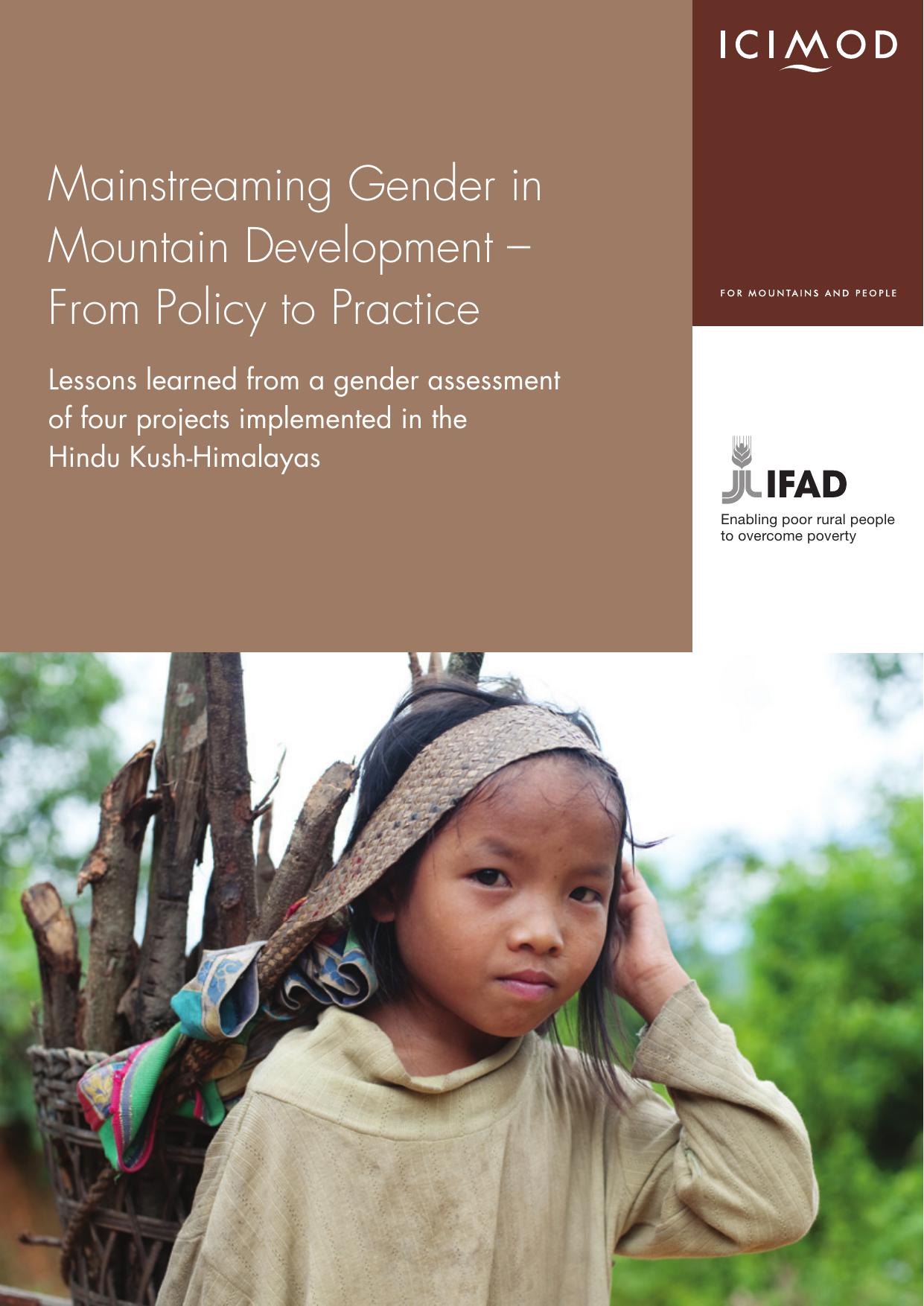
Mountain communities meet the numerous challenges inherent in living in a mountain environment with an array of livelihood strategies. Surviving in an inhospitable environment requires strong collaboration between the members of a community; however, little attention has been paid historically to the role of women in mountain livelihoods. Mountain women’s knowledge and skills contribute significantly to a family’s health and wellbeing, but the additional hardship of their workload, and their relative isolation, is rarely addressed in development plans. Gender inequality adds to the burden of women. In the Hindu Kush-Himalayan region they are less educated and have more health problems. They generally have limited access to technology, financial resources, land rights, training, information, and mobility andthey are rarely represented on decision making bodies. This publication explores the key elements required in a gender mainstreaming strategy for sustainable mountain development, based on the findings of gender assessments of four projects in mountain areas of India and Nepal. It describes the methodological framework, how the projects addressed gender issues, the lessons learned, and finally makes recommendations on how to mainstream gender in development projects and programmes in the Hindu Kush-Himalayas.
_x000D_